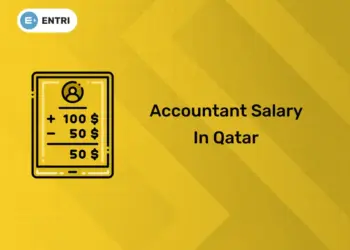Table of Contents
If you’re in search for a profitable career, becoming a certified financial analyst is a great option. There are many benefits to doing this type of course, such as earning a high pay, having job security, working with exciting and complex data, and much more. This blog will discuss the five main benefits of a certified financial analyst course. Read on to know more about this topic!
As the certification is internationally recognized, it makes the job expectations of the certified financial analyst more than those without it.
Start Your Journey to Financial Success – Learn Accounting with Us!
Five benefits of doing a financial analyst certification
There is no doubt that having the CFA certificate will bring in several other benefits as well. This article, therefore, objects at concentrating on the benefits one can get by earning the Chartered Financial Analyst Certification:
1. A Prestigious Designation
The Chartered Financial Analyst (CFA) designation is a highly desired achievement for many aspiring finance professionals. CFA charter holders are sought after in many sectors, including portfolio management, pension funds, hedge funds, and fund of funds.
This esteemed credential also opens doors to opportunities in private banking and financial advisory. Some of the most sought-after career prospects among CFA charter holders include:
Portfolio Managers
CFA charter holders have the responsibility of generating investment portfolios that meet clients’ objectives while controlling their expectations and transactions. They are responsible for designing investment packages that is in the range of their clients’ goals and managing the buying and selling of investments on behalf of their clients.
Research Analysts
CFA charter holders are anticipated to have proficiency in researching, collecting, analyzing, and interpreting data to support their organization’s decision-making process. Their job role needs the ability to collect and analyze data, which can help in making informed investment decisions.
Risk Managers
The role of a Risk Manager includes recognizing and examining various types of risks that can affect a business’s financial expenses. They achieve this by executing crisis management, introducing operational protocols, overseeing insurance coverage, and assuring that procedures are in accordance with the latest best practices.
Financial Advisors
Financial Advisors are approached by clients asking perceptions on how, where, and when to invest to attain the best results. Their recommendations are on the basis of an individual’s financial plan or investments made towards a larger financial plan.
Relationship Managers
Professionals in this field are renowned for their ability to build and sustain strong customer relationships, whether within the company or with external clients. Their primary role is to provide guidance to clients on products or services that are tailored to their specific needs.
Corporate Financial Analysts
Financial Advisors are approached by clients seeking insights on how, where, and when to invest to achieve the best results. Their recommendations are based on an individual’s financial plan or investments made towards a larger financial plan.
2. Lucrative Salary
A career as a CFA is a famous choice for many due to the lucrative salary it pays. Major companies highly value certified CFAs, which not only provides growth opportunities but also provides satisfactory salary packages. Attaining this certification adds extra credits to your favor while the selection process. With experience in the field, you can expect to be offered projects with more vision, that will positively reflect on your paycheck as well.
3. Networking opportunities
Earning the CFA certificate is a best method to widen your networking and job opportunities. With more than 167,000 CFA charter holders around the world, and the numbers continuously going up, the CFA credential provides a vast network of professionals to connect with. The certificate is recognized worldwide, which creates opportunities in all the major countries. The designation has good value and demonstrates a high level of expertise in the field of finance, opening doors to high salary job offers and high-paying positions.
4. All Round Syllabus
The chartered financial analyst course is an all-encompassing program which covers the important areas of the finance industry. This comprehensive curriculum not only aids inspiring professionals to clear the CFA exam easily but also provides them with the necessary knowledge and skills needed to excel in their future roles and responsibilities. The 10 topics on which the CFA exam is structured are:
➤ Ethical and Professional Standards
➤ Quantitative Methods
➤ Economics
➤ Financial Report and Analysis
➤ Corporate Finance
➤ Equity Investments
➤ Fixed Income
➤ Derivatives
➤ Alternative Investment Portfolio
➤ Portfolio Management and Wealth Planning
Become an Accounting Pro – Learn from Industry Experts!
5. Work for Major Investment Firms
Earning the CFA credential opens up opportunities to set up a career in some of the biggest firms in the finance field. These professionals are mostly appointed in asset management, investments, and research divisions. So, if you inspire to work for these firms, the Chartered Financial Analyst course can teach you to crack their recruiting and interviewing phases, making you the top choice among employers. In addition, the CFA certificate exhibits your efficiency in all aspects of finance, making you a valuable asset to any finance-related organization.
6. Waive Certain Requirements
Earning the CFA certificate provides the freedom to work around the world without worrying about accomplishing specific regulatory requirements, mainly in the investment and trading fields. In addition, if you plan to acquire a graduate degree in banking, investment, or financial services, the CFA credential exempts you from taking the GMAT entrance exam.
The best way to prepare for the CFA exam is by joining in a reputable Chartered Financial Analyst course. It’s indisputable that attaining the CFA credential is the foundation for a successful career. Anyhow, achieving this feat is only possible with the assistance of trained and experienced instructors. With the right support and mentorship, achieving the chartered analyst financial course certificate will be a walk in the park.
5 Financial Analyst Certifications
1: Accounting provides information on
Here is a list of some financial analyst certifications to consider pursuing:
1. Chartered Financial Analyst (CFA) certification
The Chartered Financial Analyst Certification is a professional course offered by the Institute of Chartered Financial Analysts of India. This internationally recognized certification aids financial analysts exhibit a high level of expertise in finance and investment management.
Candidates attend the exam in three levels, that starts with the CFA Foundation Level 1 followed by CFA Level 2 and then CFA Level 3 exams. Each level consists a six-hour exam. Some main topics for the exams include economics, quantitative methods, financial statement analysis, wealth management, equity investment and portfolio management. Listed below are some details about this credential:
-
Eligibility criteria: Candidates must pass 10+2 examinations and have a bachelor’s degree. On the other hand, they can qualify with a minimum professional work experience of 4000 hours or a combination of professional work experience and higher education.
-
Duration of the course: The course lasts for about 1.5 years to four years usually. This is based on the exam window selection and work experience requirements.
Start Your Journey to Financial Success – Learn Accounting with Us!
2. Certified Financial Planner (CFP) certification
The Certified Financial Planner certification is a global certification offered by the Financial Planning Standards Board (FPSB) for individuals wishing to boost their knowledge in ethical financial planning.
Financial planning includes evaluating a financial situation and developing strategies to accomplish short- and long-term business aims. The certification aids candidates with professional development and achieving the necessary ethical and professional standards to execute financial planning for different clients and organizations.
The CFP exam is multiple choice questions-based test. It consists of 170 questions with a duration of 2 to 3 hour sessions. There are five exams with six modules that enclose subjects including financial planning, estate planning, insurance, risk analysis, employee benefits and investment planning. Below given is a list of some other details about the certification:
-
Eligibility criteria: Candidates must pass their class 10+2 examinations from recognized boards. They also must pass the five exams enclosing all six modules of the certification program.
-
Duration of the Course: The course lasts for six months to two years usually. This is based on the mode of study, learning speed and exemptions due to past professional experience or qualifications.
3. Certified Public Accountant (CPA) certification
The Certified Public Accountant (CPA) certification is a designation conducted by the American Institute of Certified Public Accountants (AICPA) for qualified accountants with skills in accounting, financial analysis, compliance and auditing. CPA is a four-hour-long exam divided into four sections. Here are some details about the certification:
-
Eligibility criteria: The eligibility differs in each state and candidates must be having completed a degree in accounting, finance or related area and nearly 150 semester hours of college courses to earn a CPA license. They also need two years of experience under any CPA.
-
Duration of the Course: Candidates must complete all four parts within 18 months.
4. Certified Management Accounting (CMA) certification
The Institute of Cost Accountants of India (ICAI) offers this certification objecting at providing knowledge and skills on corporate finance, strategic management, financial planning, decision-making and professional ethics.
The course has three levels, which include the Foundation, Intermediate and Final levels. There are 20 papers in total with four papers in the Foundation level, eight papers in the Intermediate level and eight papers in the Final level. Here are some more details about the certification:
-
Eligibility criteria: Students must pass the 12th examinations with minimum of 50% or having a bachelor’s degree.
-
Duration of the Course: The duration of this certification course is almost three years. This is based on the program and the mode of study.
Start Your Journey to Financial Success – Learn Accounting with Us!
5. Association of Chartered Certified Accountants (ACCA) certification
The Association of Chartered Certified Accountants (ACCA) conferred by the UK’s Association of Chartered Certified Accountants is a professional certification in the field of accounting, finance and management. There are three levels in this certification, which are Knowledge, Skills and Professional.
The Knowledge level consists of papers on accounting in business, financial accounting and management accounting, while the Skills level consists of papers on taxation, corporate and business law, performance management and financial reporting. The Professional level consists of papers on strategic business reporting and business leadership.
The ACCA Exam takes place four times a year, during the months of March, June, September and December. Below are some details for the certification:
-
Eligibility criteria: Candidates must pass 10+2 examinations with a minimum of 65% total in maths or accounts and English and 50% in other subjects. There are certain exemptions based on a student’s qualifications.
-
Duration of the Course: The course duration is almost one year to three years. This is based on the candidate’s learning pace and schedule.
Discover Financial and accounting Courses with Entri App
Financial analysts are in high demand, and Entri’s practical accounting course can help students begin a career as a financial analyst. This accounting course covers everything from valuation methods to modeling methodologies, enabling students to quickly gain competency while acquiring essential skills like collaboration.












